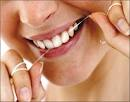Experts largely discuss over the amount of water you should drink per day, but no one actually knows the reason for such debates.
Many studies suggest that you should drink 8-9 glasses of water per day. But, what happens to your body if you do not drink enough water?
1. There is a great possibility that you will have to deal with a certain health condition. Drinking plenty of water will help you reduce the chances of getting kidney stones, gastrointestinal and urinary tract cancer, and heart attack.
2. The lack of water slows your metabolism. The function of the metabolism depends on the amount of water you drink, so your metabolism will work faster as you increase the water intake, which is one of the basic rules.
3. You will have to put more effort when doing your regular activities. Dehydration pressures and shrinks your brain, and it will need twice as much time to accomplish the tasks.
4. Increased appetite. People who drink 2 glasses of water before their meals eat 75-90 calories less. This routine will help you lose 5 pounds in three months.
5. You look older and your skin is wrinkled. Water hydrates the skin, fills in the fine lines and wrinkles, giving you a nice and bright skin tone.
6. Lack of water causes mood swings. Dehydrated people often feel weak and helpless, confused, angry and depressive, unlike people who drink plenty of water.
reference: Healthy Food House
Brought to you by Nylaan Dental Team - Your Total Health is our goal.









